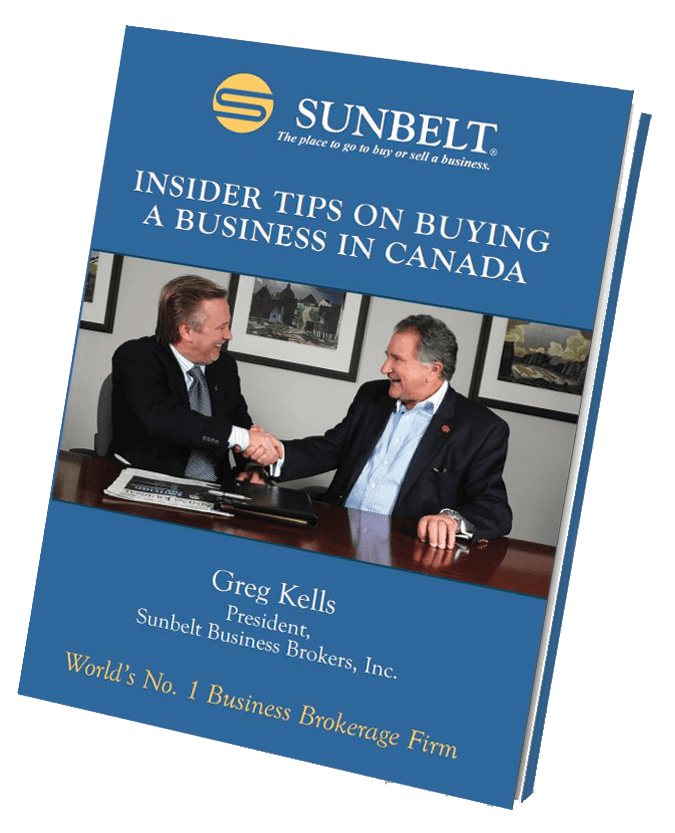
Unless you’re in the enviable position of having enough cash on hand to purchase the company outright, securing a loan is a crucial step. For many, no phase of the business buyer’s journey is more important than having the funding to seal the deal. Without this money, there is no way for you to move forward with the procurement.
There are a few different lending options you can consider, and the advice of a business broker can be invaluable during this time since choosing the right lender is vital to getting approval.
In this post, we’ll examine the funding options available for securing a loan to buy a business, and subsequent steps to doing so, in addition to the details lenders look at when reviewing applications.
Table of Contents
Understanding Business Financing
You’ve likely applied for some kind of loan or financing before, especially if it involved an expensive purchase. Whether a car or a home, banks and lenders tend to see these as sound investments. But financers tend to waver regarding funding for a business purchase.
This is because you are not buying a static item but rather something that can more freely ebb and flow with the economy and, depending on the valuation, may have many moving parts. Thus, the lending risk is higher.
Although some traditional lenders may not be viable options, several providers are still willing to approve the funds for buying a business. The key is to find the one that suits you best, and from there, ensure your financials and those of the company you are considering purchasing are in order.
 Ways To Get A Loan To Buy A Business
Ways To Get A Loan To Buy A Business
You might weigh a few options when attempting to secure a loan to buy a business. Your broker can work with you to determine the best options available, but ultimately you decide the route you will take.
Self-Funding
Depending on your current disposable income, you may look at self-funding as an option to secure your purchase. While this is the quickest way, it’s not always the best. For many, the amount of cash is not available on demand.
One could borrow from their savings, TFSA, RRSP, and home or personal line of credit and still not have enough, or put themselves in a bad financial situation. This isn’t a popular or potential option for many buyers.
Seller Financing
In the business buying and selling world, seller financing is a part of nearly every deal in Canada. They are often in a position to do so; if they are motivated, this shouldn’t be an issue.
However, as brokers, we advise against the seller financing 100% of the sale. At most, we recommend 70%, where the seller then contributes 30% through a means of their own, whether that be personal finances or a bank loan. Decades of experience in this business have taught our brokers that while there are recommendations, there are no hard and fast rules to a deal.
Sometimes, a seller may be willing to finance the entire sale or none of it at all. In any scenario, the best thing you can do is trust your business broker’s advice on the next steps.
Bank Loans
These kinds of loans are available for business purchases that are considered assets. Namely, the Canada Small Business Financing Program. However, this loan may be more challenging to secure as sellers often want share purchases so they can take advantage of the Lifetime Capital Gain Tax Exemption.
The interest rate on a bank loan of this kind is the lender’s prime rate plus 3%. You can apply for these funds to buy a small business at most banks, but there are limits on how much you can get depending on the lender. Should you apply, the bank will expect a business plan and be focused on the future potential of the business and less so on its history.
Current limits of bank loans to buy a small business:
- Approximately $500,000 secured by tangible assets
- $150,000 for working capital or intangible assets
Business Development Canada (BDC)
BDC is an excellent resource for business buyers and will finance both share and asset purchases. They do not have limits on these loans; however, they will charge more interest than other options. The process to be approved for these loans can be more rigorous as well, focusing heavily on due diligence and the track record that the business has.
If you apply, you may choose to employ their advisory services, which are available for a fee. Many buyers turn to BDC because they will fund deals that regular lenders won’t, and once you have been approved, they offer greater flexibility and additional support as needed.
Chartered Banks
Primarily, these financiers focus on larger businesses rather than small ones. They’ll review the buyer’s personal assets and may have programs that fund the purchase of professional practices, certain franchises, or a specific industry.
With the purchase of a larger business, they do not have limits on financing and can provide various loans, including a line of credit, real estate mortgages, or term loans.
Private Equity Groups
Depending on the industry you are buying into, a private equity group could be an appealing lender. They have available capital and can be eager to lend, but they will likely require a management team, even if they are purchasing full control. They may desire a majority or minority interest, depending on the firm.
Private equity groups are often ideal for businesses seeking growth capital or for roll-ups where the acquisition is being done by one of the operating companies they are trying to grow.
Alternative Financing
Private lenders are also available to finance the funding for a business purchase. Their rates are usually higher than the banks to lower their risk of investing in your venture. While some may be more helpful and knowledgeable about the industry, others will jump at the chance to pin you down and exercise their security, making them risky to deal with.
If you plan to use a private lender, ensure you take the time to check their history. Review with your lawyer, accountant, and broker to verify if this is a good move for you or if you should pursue another financing avenue.

Insider Tips on Buying a Business in Canada
Buying a business takes time. Find out everything you need to know about buying a business from the experts.
Download free e-bookSteps to Get a Business Loan in Canada
No matter the lender you choose to apply with, there will be some essential documents you’ll need to put together for their review. From there, they will want a comprehensive look at the business to determine the affluence of this investment. Here are the most important steps to consider during this process:
- Prepare Your Documents
Lenders will primarily look at your financial situation before moving on to that of the business you are considering buying. They might request a few different documents, so if you are applying to several lenders, it’s a good idea to have these together ahead of time.
- Personal bank statements
- Two years of personal tax returns
- If you’ve owned a business before, the financial statements from that company
- A comprehensive list of personal debts that includes the amount owed, monthly payments, and payoff date where possible
Your credit history will be of utmost importance and influences the lender and the seller. It is best to run your own credit report and review it with your business broker before applying for a loan. From there, your broker can make recommendations based on your score and how to move forward.
- Secure The Company’s Documents
The lender you work with will also want to see a well-documented scope of the business you want to buy. You’ll need to contact the business owner, or their broker, for the below information. Since it contains financial details, they may request you to sign a non-disclosure agreement to protect their data.
- Cash flow statement
- Profit and loss statement
- Business balance sheet
- Two years of tax returns
- Business bank account statement
These documents will also give you insights into the business’s profitability and may help cement your decision to proceed with the deal once your loan is approved.
- Add to Your Application
After you’ve gathered documentation from both sides, you’ll need to collect additional documents to complete your application. The details will differ depending on the business, but in general, the following is vital information that loan providers require.
- A business plan will give a lender a better idea of how you plan to run the company. Are you keeping things the same? Or are you planning on altering operations? They’ll want to see those details in this document.
- The Letter of Intent (LOI) explains, formally, that you intend to buy this business and have informed the seller of your wanting to do so.
- Completed by a broker or credible business valuator, the business valuation shows its total worth. This is perhaps the most crucial document you’ll need to have.
- Lenders will examine the profitability of a business and often focus more on its financial future. For that reason, you’ll want three to five years of cash flow projections.
Your business broker should provide you with a confidential business profile (CBP) that will give you a five-year forecast and cash flow based on those projections. It shows you whether you can support debt servicing, look after capital expenditures, and make a living after all is said and done. Your plan may be different than the one your broker puts together, so ensure you review your goals and vision with them so it can be modified accordingly.
- Submit Your Application
The final step is to submit your application to your chosen lender. This could be an online process, or you may hand it in in person. It’s worth noting that they may request additional paperwork while reviewing your documentation, which you should be prepared to produce.
Pro Tip
The time you wait for approval will depend on the provider and the type of loan you apply for. If the lender decides to move forward with giving you the loan, they will send an agreement for you to sign before they release the funds to you.
What Do Lenders Consider?
Buying an already established and profitable business tends to be more appealing to lenders than start-ups. The change in the equation is you, so they will likely focus a bit more heavily on your financial situation and capabilities to ensure you can continue to keep the business successful.
Credit Score
Good credit is paramount for nearly all lenders. They’ll want to see that you can keep up with payments and are not carrying significant amounts of debt that would impact your loan repayment. A minimum score of 680 tends to ensure the best chances for approval.
Industry Experience
Are you buying an enterprise in an industry you are familiar with? Even if you haven’t owned a company, industry experience can determine whether lenders will approve your funding to buy an existing business. They’ll want to see that you can adapt to changing conditions and understand some of the operation’s ins and outs.
Personal Finances
How you manage your own money can say a lot about how you will manage a company’s funds. A lender will consider the current state of your finances and likely require a down payment. This can be up to 30% of the purchase price.
Other Factors To Consider When Securing Financing
Reaching this stage of a business deal is an exciting yet daunting time. While you might be keenly focused on receiving approval, other factors must be considered before the agreement can proceed.
The Loan Details
Depending on your financial circumstances, you may be looking to apply to many or a selected few lenders. You’ll also want to look at the details of the loans you’re applying for and ensure they fit within your comfort level. The top five considerations should be the term, size, flexibility, collateral, and reporting covenants. These will vary from loan to loan, so review them carefully with your lawyer, accountant, and broker to verify that you are applying for the right loan to buy a business.
Due Diligence
While getting a loan to buy a small business has some hurdles to overcome, the deal still hinges on the due diligence conducted by the buyer. Documentation such as financial statements, income tax returns, an assets and equipment list, client and supplier lists, employees’ files, and important contract information should all be readily available to you and your broker.
Everything needs to add up to move forward with the purchase. Even if you have secured financing, due diligence might uncover unsavoury details that make you want to back out of the purchase.
Negotiating the Deal
The asking price of a business does not always mean that it is the final number you will pay for it. While it is ideal to apply for the amount of financing you would need to cover the cost, negotiations can bring the price down and into a more reasonable threshold.
Even if you are approved for the amount you asked for or a lesser sum, you can use the negotiating phase to your advantage. Trust your broker to connect with the seller and work out terms that will be ideal for you and your situation.

13 Benefits of Working With A Business Broker
At Sunbelt Canada, we’ve handled countless business transactions throughout our decades in the industry. We understand that securing the funding to buy an existing business can be a hurdle for some buyers, but we are here to help guide you through it. Our brokers can connect you with suitable lenders to ensure your deal progresses as you want it to. Are you interested in learning more about our services? Contact us today.


 Ways To Get A Loan To Buy A Business
Ways To Get A Loan To Buy A Business
